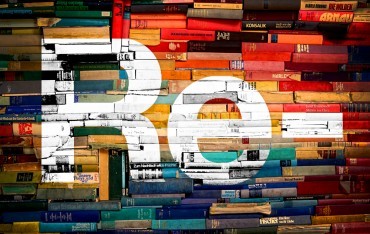‘Re-’ Interdisciplinary Network

| Created: | 2018-12-03 10:04 |
|---|---|
| Institution: | Centre for Research in the Arts, Social Sciences and Humanities |
| Description: | The 'Re-' Interdisciplinary Network asks how and why we repeat, revive, re-enact, restage, reframe, remember, represent, and refer – to whom, when, where and why -- and why this a topical question in a digital era. It gathers researchers, teachers, writers and artists whose interest in topics related to cultural reproduction, repetition and reference extends beyond traditional disciplinary boundaries and the university/public divide.
It has long been understood that repetition in a public context is socially identifying: to repeat can never be neutral. The very concepts of culture and society -- as learned, shared, traditional -- depend on repetition. But understanding these mechanisms is a pressing issue in a technological present where repetition and recognisability are intimately related to power. From translation, adaptation, preservation, memorial and ritual to brand and social media ‘sharing’, our primary research aim is to explore whether different socially-driven practices of repetition might have meaningfully related structures, implications, and dynamics. We hope by bringing different knowledge systems and approaches together, new questions and principles might emerge: the agency of apparent consensus, for example; or the work done by label, category, and association, or how familiarity itself establishes, legitimises and persuades. What starts and changes a prevailing narrative, and for whom? How should we approach a thing that exists in reciprocity with its own notoriety? Repetition is everywhere: embedded in human practices inevitably, as well as deliberately. “Re-“ takes a critical lens to this by asking, of any instance of repetition: what constituencies/audiences are implied by a particular act of (re)address; what else is being performed other than the repeated thing itself: values such as status, legitimacy, commemoration, continuity, authority, participation, legitimacy, identity, nation; whether an act of repetition works to reinforce a status quo or change it - or both. The network aims to shift public attention from what artworks and other kinds of public statements are, to what they do. Its long term goal is to help equip the public with a more fluent grasp of how cultural repetition offers an identity, frames a particular worldview, implies a consensus, and performs a persuasive past. The 2018-19 series of 'Re-' seminars at CRASSH will explore three 'Re-' topics: Beyond Originals and Copies: (hierarchical relations of 'sources' and their versions as a western and nineteenth-century view of culture, with Margherita Laera) Technologies of Reproduction (mechanisms of reproduction and their affordances in social protest movements, with Sophie Seita, Anne Alexander and the Cambridge Centre for Digital Humanities) Iteration as Persuasion (how repetition works in the present attention economy, with Satinder Gill and Ella McPherson, co-curated by sociology graduate students Ruichen Zhang and Francesa Root) - to be published as a special issue of AI and Society Journal. Keynote lectures Professor Freddie Rokem (Theatre Studies, Chicago/Tel Aviv) Nov 30th Professor Richard Coyne (Architecture, Edinburgh) Feb 6th Professor. Salvatore Settis (Classics, Columbia/Pisa) Feb 12th CRASSH is not responsible for the content of external websites Michaelmas Term 2018: Beyond Originals and Copies This series of seminars asks how ideas of original/copy differ from culture to culture. By taking both an interdisciplinary and an intercultural perspective, we hope to explore the extent to which a vision of unique authored ‘originals’ and their versions is characteristic of the West and the nineteenth century: and to ask why looking again at the values bound up in different ideas of ‘copying’ is timely in a digital era. Lent Term 2019: Technologies of Reproduction This term we ask how different technologies of reproduction afford different types of social and political relations. From capillary one-to-one transmission, to networked sharing, to anonymous broadcast, to embodied practices - how might these different forms of repetition help us think through the varieties of digital public space? To sign up to receive information about this network, please visit: https://lists.cam.ac.uk/mailman/listinfo/ucam-re-interdisciplinarynetwork If if you want to share information about an event related to a ‘Re-‘ topic , please email the list at: Ucam-re-interdisciplinarynetwork@lists.cam.ac.uk Administrative assistance: Networks@crassh.cam.ac.uk |
Media items
This collection contains 5 media items.
Media items
Re - 16 October 2019 - Towards An-Iconology: Environmental Images
Professor Andrea Pinotti (Prof. Aesthetics, Università degli Studi di Milano) will discuss his current ERC Advanced Grant
‘AN-ICON - An-iconology. History, Theory, and Practices...
Collection: ‘Re-’ Interdisciplinary Network
Institution: Centre for Research in the Arts, Social Sciences and Humanities
Created: Fri 8 Nov 2019
Re - 21 November 2018 - Replicas: Perspectives from the History of Art and Science
Can there be copying without loss? If so, what is the ontological difference between the ‘original' and the ‘copy’?
Collaborators Adam Lowe and Simon Schaffer in conversation...
Collection: ‘Re-’ Interdisciplinary Network
Institution: Centre for Research in the Arts, Social Sciences and Humanities
Created: Mon 3 Dec 2018
Tacit Engagement in the Digital Age - 26 June 2019 - Geoff Mulgan - How Can Collective Intelligence Orchestrate Tacit...
Geoff Mulgan (CEO, National Endowment for Science, Technology and the Arts)
A joint conference by the 'Re-' Interdisciplinary Network (CRASSH) and the AI & Society Journal
...
Collection: ‘Re-’ Interdisciplinary Network
Institution: Centre for Research in the Arts, Social Sciences and Humanities
Created: Fri 11 Oct 2019
Tacit Engagement in the Digital Age - 26 June 2019 - Welcome and Introduction
Satinder Gill (Music, AI&Society, Re-Network, University of Cambridge)
A joint conference by the 'Re-' Interdisciplinary Network (CRASSH) and the AI & Society Journal
A...
Collection: ‘Re-’ Interdisciplinary Network
Institution: Centre for Research in the Arts, Social Sciences and Humanities
Created: Fri 11 Oct 2019
Tacit Engagement in the Digital Age - 27 June 2019 - Roundtable - Intelligences: Models
Roundtable
Intelligences: Models
Chair: Victoria Vesna (Art|Sci UCLA, USA)
Dietrich Brandt (RWTH Aachen, Germany)
'Enlightenment: The Past, the Present, and Our...
Collection: ‘Re-’ Interdisciplinary Network
Institution: Centre for Research in the Arts, Social Sciences and Humanities
Created: Fri 11 Oct 2019

